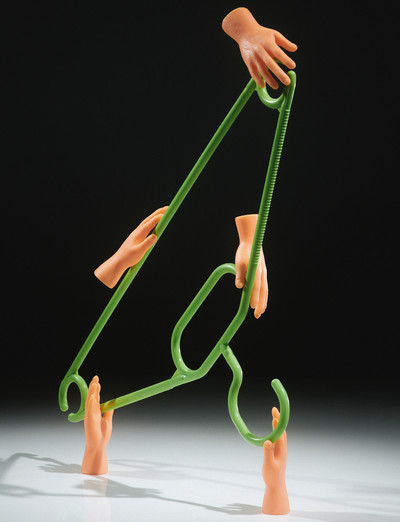For the Ukrainian founder of 1 Granary, our global industry offers hope.
By Olya Kuryshchuk
Photograph by Guillaume Blondiau
For the Ukrainian founder of 1 Granary, our global industry offers hope.

How can you care about fashion when you know that 1,500 miles from where you are children are sheltering from bombs? Let me explain. Caring about fashion comes easily to me because they’ve never been just clothes to me. They couldn’t have been. Growing up in post-Soviet Ukraine, my generation was the first that could realistically access a new world, one that had previously only revealed itself in magical glimpses on the television. Fashion was the great escape, an undiscovered territory where imagination was considered a valuable currency, rather than a game for children.
I completed a law degree before I found the courage to admit to my friends and family that I was moving to London to study fashion – a proposition that was met with instant ridicule. ‘You’re passing up the opportunity to become a judge to be a seamstress?’ To them, the idea that I could ever join the people we saw on the pages of those imported magazines was laughable; I might as well have announced I was moving to the moon. Luxury and glamour weren’t ours to claim.
I didn’t care; I didn’t need to be accepted. I would get to observe from the shadows. That attitude got me a long way, because every experience, every exhausting internship or devastating critique, felt like an exciting new opportunity.
As I was studying to become a designer, fashion did what fashion does best: create a community. I found myself inside a circle of other unusual backstories and funny accents, and it dawned on me: if we learn more about the fashion system, we might actually create a space for ourselves outside of the shadows. My curiosity and eagerness to understand the industry became my greatest advantage. I asked questions to anyone who was willing to answer and shared the results on a website. Those were the foundations of 1 Granary, which is today a global support network of designers, schools and brands, and my home away from home.
How can you care about fashion when you know that 1,500 miles from where you are children are sheltering from bombs? Let me explain…
When Russia invaded Ukraine on 24 February, the doors I had spent my formative years discovering flew open before I had even had a chance to knock. From every corner of the industry, friends, colleagues, and strangers offered their support. Fashion journalists and editors helped me inform their global readership on the realities of the war; graphic designers created posters and infographics to spread the word even further; and stylists and agents organised clothing and material supplies for refugees. I was offered donations and logistical contacts for my fellow citizens, transport and places to stay for my family. It’s horrifying that it takes something so profoundly evil to realise how incredibly kind the world is.
That was the moment fashion became more than just a dream, when I realised I could use my skills and network to help. That might sound delusional, but I can assure you that reaching out to your contacts for practical support feels a whole lot better than sitting in front of the news in tears.
During those first days of the war, I did – briefly – have trouble imagining ever caring about clothes again. When your home country is under attack, when the lives of your parents, brothers, nieces, and high-school friends are at risk, when everything you took for granted is suddenly threatened, you don’t want to think about anything that doesn’t concern their immediate safety. That included fashion, until the fear and anxiety turned into activism when I understood how powerful the business can be: we have supply chains connecting countries across the globe; media reaching masses of followers everywhere; and a shared, universal language of creativity.
I recently noticed that many of my friends in London have stopped sharing their personal news with me. Group chats that were previously filled with happy career updates or fun industry gossip suddenly turned quiet. When I pressed them about the silence, they confessed that people were feeling guilty about coming to me with anything that didn’t relate to the war. They hadn’t understood how much fashion means to me right now. After having so much taken away, to have something I love so much means the world – fashion is what allows me to keep going.
There is no shame in recognising and appreciating something good while you have it. I’ve experienced first-hand how fast loss can come – and I’ve learned that as long as you’re alive, you have to keep living.